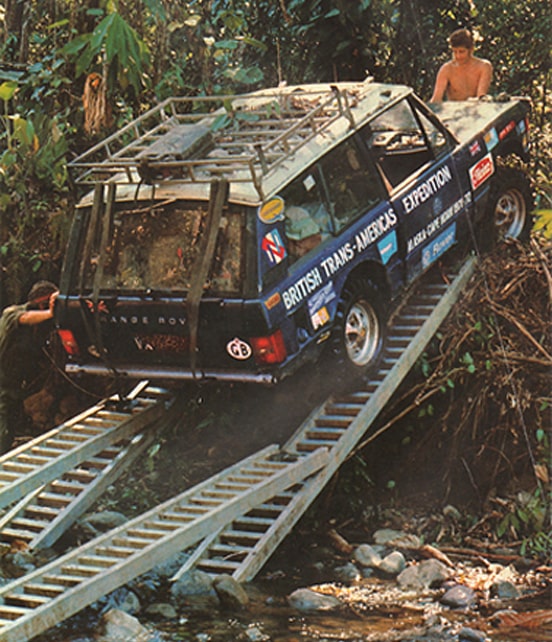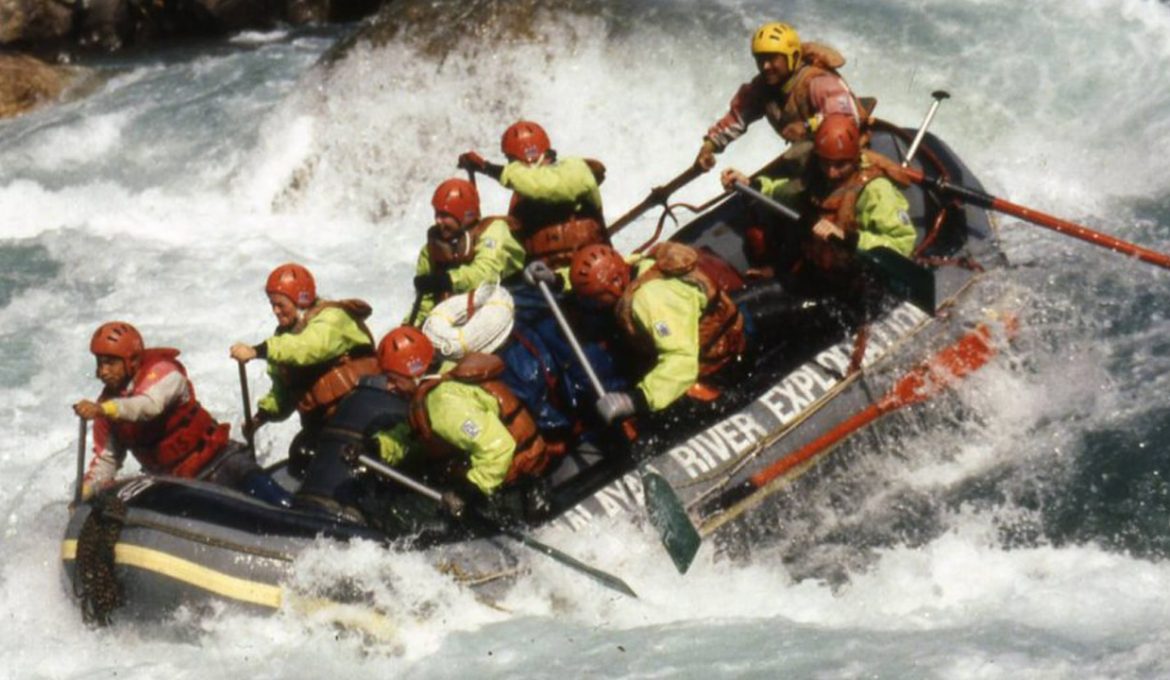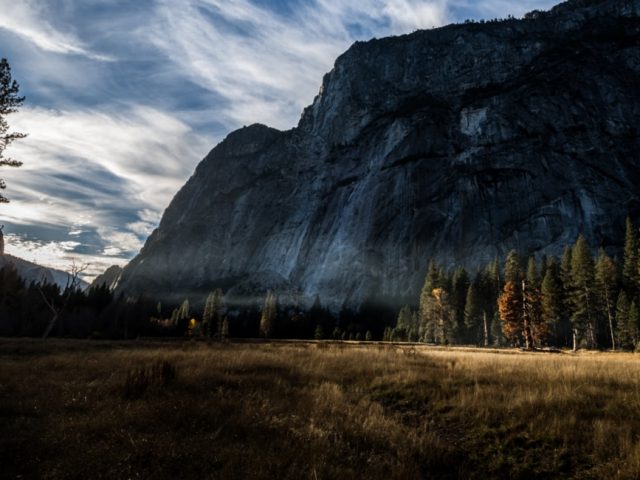I often think I must be mad…”
-John Blashford-Snell
In my investigation of distinguished explorers I recently encountered a man quite unknown to me — the Englishman John Blashford-Snell. Shame on me, because he’s is a highly-accomplished modern explorer who’s led a hundred thrilling and useful expeditions, mostly in Africa and the Americas. He is fondly known as JBS.
Born in Hertfordshire, England in 1936, he was raised both there and on the island of Jersey, after which he attended the Royal Military Academy at Sandhurst. Having completed his training at 21, he was commissioned into the Royal Engineers, with the remarkable title of “Adventurous Training Officer.” The Engineers’ motto, by the way, is a single Latin word— Ubique. This, of course, means Everywhere, and I think that’s quite wonderful.
In his training he gained expertise in combat, bridge building, explosives, clearing minefields and other manly arts— just the skills he’d need in leading expeditions to challenging places. I strongly suspect that the prospect of adventure was what drew him to the Royal Engineers in the first place.
JBS’s first major expedition was in 1968, at the order of His Imperial Majesty Emperor Haile Selassie of Ethiopia. The Emperor required a survey of the Ethiopian portion of the Blue Nile. Arising in Lake Tana the northwest Ethiopian highlands, it flows 900 miles to its confluence with the White Nile, near Kartoum, Sudan. Known as “The Everest of Rivers”, it passes through extremely hostile territory — boiling rapids, gorges 5000 feet deep, torrid heat, trigger-happy bandits, slavering crocodiles, venomous snakes, deadly bugs….
This is an odd fact: the Emperor happened to be an honourary field-marshal in the British Army. As such, he had the authority to use the resources of the Royal Engineers, the Royal Geographical Society and the Royal Military College of Science. He wisely put Col. Blashford-Snell in command.
So it was that the group of seventy soldiers and scientists set out in the month of July. Their boats were of prime importance, of course—one type was the rugged inflatable, the Avon Redshank Army Assault Craft— stuffed, oddly enough, with football bladders. Progress downstream was described as “bucketing”— which sounds very rough, wet and noisy. The team quickly devised techniques for handling the rapids that eventually gave rise to the popular sport of white-water rafting.
They moved swiftly through sheer-sided canyons no outsider had ever seen. Twice they encountered hostile outlaws called shifta, who mistook them for tax collectors. Once, greatly outnumbered, they were held captive for three days. Then, incredibly—with the help of an English-trained local policeman— the adventurers made a hasty escape downriver in the dark. Imagine!
Resupply could be quite unpredictable. Much of it was done by air-drop, using Canadian DeHavilland Beaver aircraft flown in from Britain. Cargo was dropped rather haphazardly, sometimes with parachutes, sometimes not. Two of the team’s favourite treats were Ritz crackers and Scotch whiskey, neither particularly well- suited to being dropped from a plane. Once, the team got so hungry they shot a 20-foot crocodile— and cooked its tail in motor oil. Sounds like just my cup of tea.
After innumerable scrapes, and two months after starting out, the lads reached their destination— the bridge at Shafartak, near the Sudanese border. It was a stirring moment when this band of leathery river-rats pulled in, flags of both nations aflutter. It was surely a rough trip—with one drowning, a 50% attrition rate and much loss of gear. Nevertheless, the heroic remnant pressed on till they’d finished the job. Praise for JBS’s leadership was universal; shortly thereafter he was awarded the MBE.
Good old JBS has had myriad other exploits; but I’ll mention a few points you may find interesting. If you wish to learn more, his autobiography Something Lost Behind the Ranges and his website https://www.johnblashfordsnell.org.uk, will do nicely.
- In 1971 he led a group tasked with traveling from Alaska to Cape Horn, some 19,000 miles— according to Guinness, the world’s longest road. The toughest part was going between Panama and Colombia, the area known as the Darien Gap— a 250 mile-wide trackless world of rivers, swamps, jungle, malaria, snakes, scorpions, fire ants, vampire bats and hostile natives. They were sixty Royal Engineers and scientists, with twenty horses, two Range Rovers and tons of gear. Progress was punishing, breakdowns frequent. It took fully 100 days, but the group got through, although six of the company were murdered by natives. It was the first ever successsful vehicular crossing of the Darien Gap. JBS called it a “feat of blood, guts and engineering.”

- In 1974 he led a team in the first exploration of the Congo River— at 2900 miles it’s the world’s second-longest river. It had been partly explored a century earlier by David Livingstone’s friend, Henry Morton Stanley, one of JBS’s childhood heroes. His group of 160 Engineers, biologists, botanists and physicians was tasked with determining the causes of onchocerciasis— “River Blindness” — a common African scourge. They were certainly well-equipped: inflatable rafts, a Beaver aircraft, two jet-boats and fourteen Land Rovers. The rapids were “horrendous; he noted constant threats from hippos, crocs and whirlpools a hundred yards across. The team would scare off hostile locals by dropping bricks from the plane, while setting off dynamite charges in the bush.
- Beneath JBS’s exterior of intrepid practicality, I noticed a couple of wild cards. One is that he is quite mad about the tiny rodent known as the vole, and has established The Vole Appreciation Society in its honour. Its motto is All Hail the Mighty Vole. Check their website http://voles.org.uk— it’s a complete hoot.
Moreover, the old boy is dead keen on Fortean Zoology, the subject matter of which is cryptozoology— the Yeti, Sasquatch, Loch Ness Monster, Werewolves, Dodos and so on. In fact, JBS is honourary lifetime president of the Centre for Fortean Zoology in Wolfardisworthy, Devon. (You can’t make this stuff up— at least I can’t.)
Today, at 85, he lives with his wife in the village of Motcombe, Dorset, and is still involved in fascinating expeditions worldwide.






Facebook Comments